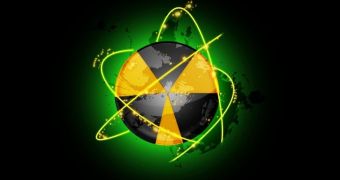This Tuesday, Tokyo Electric Power Co., i.e. the operator of the crippled Fukushima nuclear plant in Japan, went public with the news that it had temporarily stopped treatment of contaminated water on the facility's premises.
Information shared with the public says that Tokyo Electric Power Co., otherwise known as Tepco, decided to suspend the treatment of toxic water at Fukushima after discovering that a cleanup system was no longer working properly.
Japan Times tells us that, presently, the Fukushima nuclear plant is home to three advanced radioactive water cleanup systems which are collectively known as the Advanced Liquid Processing System (ALPS, for short).
Of these three cleanup systems, one, i.e. System B, was found to no longer be working properly this past Monday, the same source reports.
At that time, it was reported that, after passing through the system, contaminated water came out having levels of radioactive substances of tens of millions of becquerels.
Tepco experts say that, under normal circumstances, the system is supposed to bring down levels of radioactive substances from several hundred million becquerels to several hundred becquerels.
Shortly after System B was discovered to have taken a break from doing its job to clean up contaminated water, the nuclear plant's operator decided that perhaps it would be best if the ALPS were to be entirely shut down.
Once all the radioactive water cleanup systems are closely inspected and the faulty one repaired, the ALPS is to be turned back online.
It is estimated that, presently, some 340,000 tons of contaminated water are kept in storage tanks at Fukushima.
Tepco expects that, by expanding the capacity of the ALPS, which can now process some 750 tons per day, it will manage to finish cleaning up this water by next year's March.
Still, it would appear that investments must also be made in coming up with a more efficient version of the ALPS. This is because the system cannot, for the time being, remove tritium from the water that it processes.
The news that Tepco was forced to suspend treatment of contaminated water at Fukushima comes shortly after Dale Klein, a senior adviser to the company, said that the nuclear plant's operator might soon be forced to discharge some of the treated water into the nearby ocean.
“Storing massive amounts of water on-site is not sustainable. A controlled release is much safer than keeping the water on-site,” Dale Klein said in a statement earlier this month.

 14 DAY TRIAL //
14 DAY TRIAL //